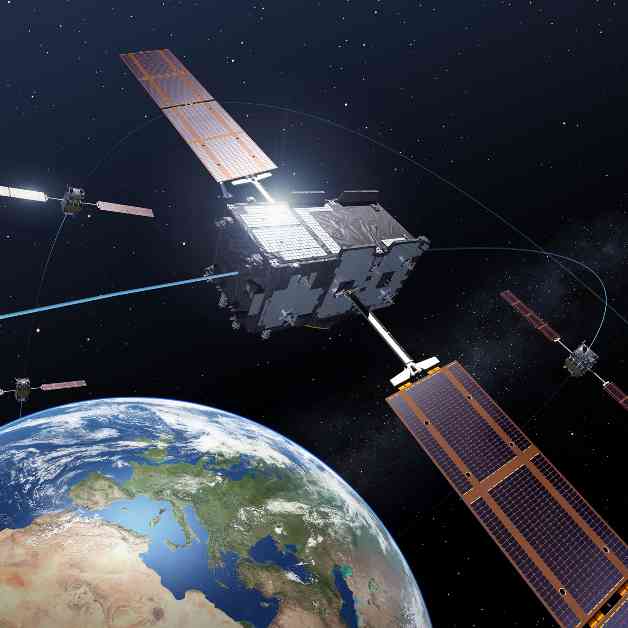The two new Galileo satellites that were launched in April have successfully completed their testing and are now operational, marking a significant milestone in the Galileo constellation. These satellites have been positioned at an altitude of 23,222 km and are providing navigation signals to users. With the addition of these satellites, the accuracy, availability, and robustness of the Galileo signal have been slightly improved.
The Galileo constellation now consists of two fully populated orbital planes out of the three that make up the system. The next launch is scheduled to take place in the coming weeks from the Kennedy Space Center in Florida on board a Falcon 9 rocket. This upcoming launch will bring the Galileo constellation one step closer to completion, with the remaining six Galileo First Generation satellites set to join the constellation in the coming years.
The successful testing and operational status of the two new Galileo satellites are the result of collaborative efforts from various teams, including ESA, EUSPA, the European Commission, manufacturer OHB, payload manufacturer SSTL, and the Security Accreditation Board. These teams have worked together to ensure that the satellites are functioning effectively and meeting the required performance standards.
Galileo is currently recognized as the world’s most precise satellite navigation system, serving over four billion smartphone users globally since it entered Open Service in 2017. All smartphones sold in the European Single Market are now equipped with Galileo capabilities, showcasing the widespread adoption and impact of the system. In addition to smartphone users, Galileo also benefits various sectors such as rail, maritime, agriculture, financial timing services, and rescue operations.
Managed and funded by the European Commission, Galileo is a flagship program of the EU that aims to provide accurate and reliable satellite navigation services. ESA plays a crucial role in leading the design, development, and qualification of the space and ground systems for Galileo, while also overseeing research and development activities for the future of the system within the EU program Horizon Europe. EUSPA acts as the operational system provider for Galileo, ensuring the delivery of services and meeting market demands and application needs.
For more information about the Galileo constellation and its services, you can visit the official Galileo website at https://www.usegalileo.eu/EN/. The continuous advancements and enhancements in the Galileo system demonstrate the commitment to providing reliable and accurate satellite navigation services to users worldwide.
